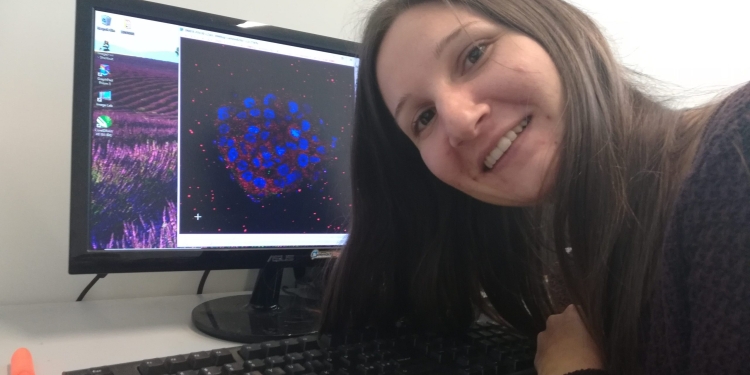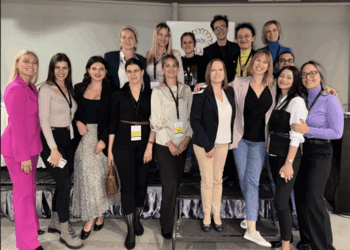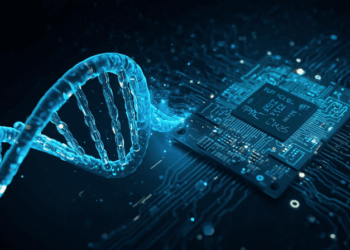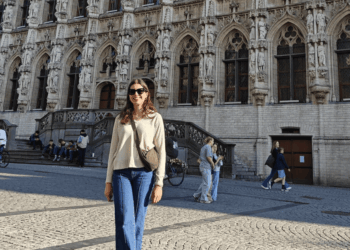EACR-Worldwide Cancer Research Travel Fellowships provide funds up to €3,000 to early-career cancer researchers. For more information on how to apply for Travel Fellowships, you can visit the EACR website.
Name: Maria Chiara De Santis, Postdoctoral researcher
Home Institution: University of Torino, Italy
Host Institution: Harvard Medical School, USA
Dates of visit: 10 May – 11 August 2018

Research: I am currently studying the involvement of a protein called PI3K-C2a in the development of breast cancer and in the response to chemotherapeutic drugs, as Taxane. Moreover, I am working on the role of another protein of the same family, PI3K-C2g, in the progression of pancreatic cancer.
Why / how did you choose the host lab?
The fellowship in prof. Muthuswamy’s lab represented a great opportunity to increase my knowledge in the field of the biology of BC, from a different point of view compared to the skills previously acquired. During my PhD, I developed competences in cell and mice models of breast cancer, while thanks to this mobility programme, I keep up with the times, acquiring a knowledge in 3D cultures, a modern technology, which is still not available in my institute. Muthuswamy’s lab, that have pioneered both the development and use of 3D-culture methods, represented the best choice to acquire this technique.
Describe a ‘typical day’ on your visit

After a 45 minutes walk, I started my lab day at around 9am. In the first period, I mainly worked with my colleagues, trying to learn as much as possible about different projects and techniques. Then, when I acquired more independence, I mainly focused on 3D cultures. At around 1pm, I had lunch with some of my colleagues, according to our timetable. In the afternoons I would have a coffee with Italian coffee-addicted friends. Around 8pm, I went back home on foot and I often enjoyed a wonderful sunset along Charles River.
What were you able to do that you could not have achieved in your home lab?
Differently from University of Torino, Harvard Medical School provided all the equipment necessary for the realization of organoids, from reagents to pre and post treatment processing and banking of patient sample and high resolution microscopy.
Did you take part in any interesting local/cultural activities?
Every 2 weeks, on Fridays, I would enjoy the happy hour at the 4th floor of BIDMC, where my lab was: this was an occasion to meet and talk with people coming from different labs, educational background and cultures. Moreover, I could visit high quality museums (MIT, Fine Arts, Natural History, Science), attractions (Sky line, Aquarium, Wale watching) and entertainments (musicals).
Did you have a personal mentor or anyone who particularly helped you?
To be honest, I did not expect to find a lab with so many kind and helpful colleagues! Every single person in the lab helped me a lot to set up, realize my experiments or simply find the reagents and instruments I needed. I was very lucky because I found a warm and positive environment. I think that Muthuswamy’s lab is an example of lab where you can do high quality science in a respectful and kind environment. Finally, I think that prof. Muthuswamy himself is not only a good mentor but also a very sensitive person.

Have you brought back any specific knowledge/technique that has benefited your home lab?
Thanks to the visit in Muthuswamy’s lab, I acquired an expertise in 3D cultures and organoids, a modern technique that I am now using in my institute, thanks to the collaboration with prof. Muthuswamy.
Does your lab plan to do any future collaboration/publication etc. with the host lab?
I am still collaborating with prof. Muthuswamy and his lab. In particular, we are taking advantage of its expertise in pancreatic cancer and organoids, together with his close relation with clinicians, in order to complete our project.







